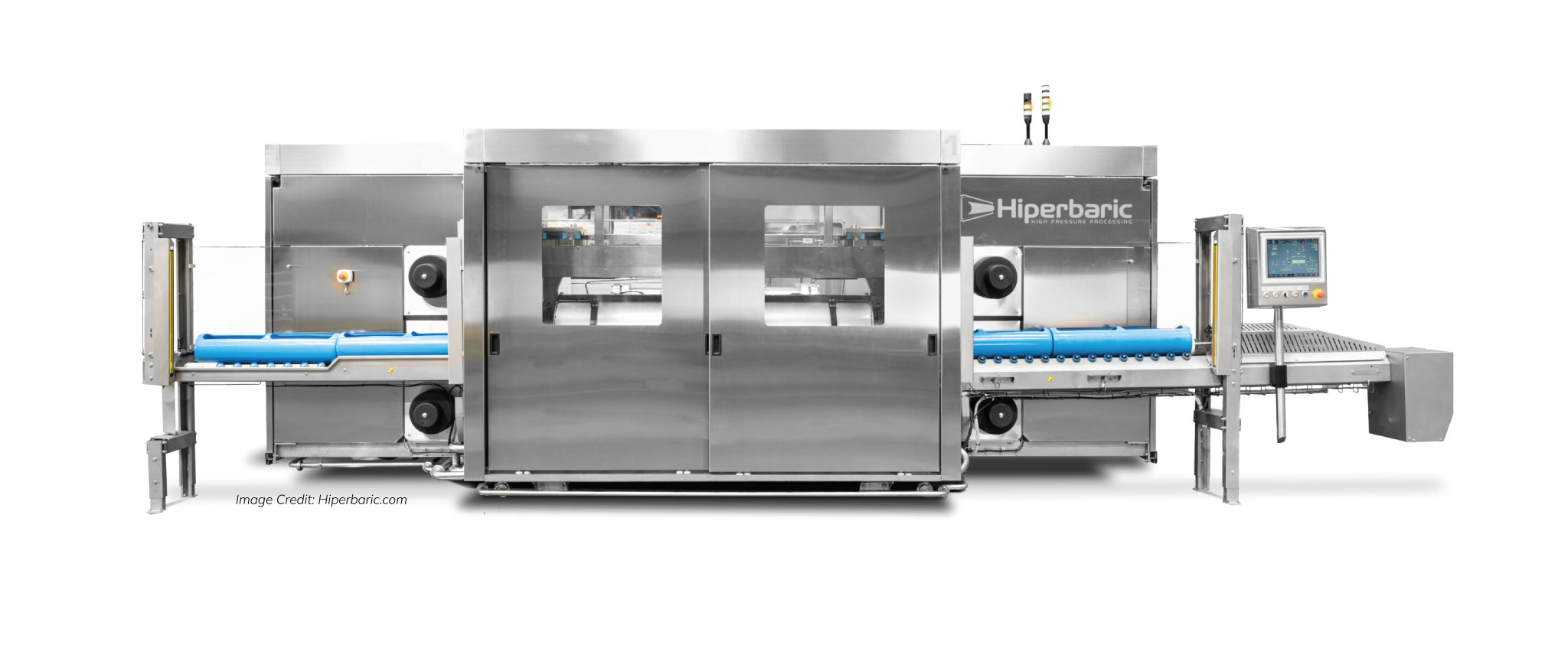FAQ
Frequently Asked Questions
Your Top Queries on High Pressure Processing (HPP) Answered!
What is High Pressure Processing (HPP)?
High Pressure Processing (HPP) is a non-thermal food preservation technology that uses high levels of hydrostatic pressure to inactivate harmful microorganisms in food, increasing food safety and shelf-life.
How does HPP work?
In HPP, food products are sealed in a container and subjected to high pressure for a short period of time. This pressure inactivates harmful microorganisms in the food, which extends its shelf life while maintaining its nutritional and sensory qualities, and improves food safety.
What types of food products can be processed using HPP?
HPP can be used to process a wide range of food products, including meat, seafood, fruits,
vegetables, juices, soups, dairy products, baby foods, and ready-to-eat meals.
What are the advantages of using HPP?
The advantages of using HPP include extended shelf life of food products, preservation of nutritional and sensory qualities of food, elimination of the need for heat treatment, reduction in the use of chemical preservatives, market expansion, and food safety.
Is HPP safe?
Yes, HPP is a safe food processing technology. It does not use heat or chemicals, which can alter the nutritional and sensory qualities of food. However, it is important to use appropriate packaging materials and follow good manufacturing practices to ensure the safety of HPP-processed food products.
What packaging is compatible with HPP?
Food packaging for conventional HPP is mostly limited to plastic polymers such as PET, PP, PE,
PA or EVOH. Environmentally friendlier alternatives such as recycled PET, PLA, and Bioplastics
are also suitable.
Does HPP affect the taste and texture of food?
HPP does not affect the taste and texture of food. In fact, it can enhance the flavor and texture of some food products, such as fruit juices.
How effective is HPP in eliminating harmful microorganisms in food?
HPP is highly effective at inactivating harmful microorganisms in food, but the effectiveness of HPP depends on several factors, including the characteristics of the food to be processed and how it was manufactured.
Are good bacterias killed too during HPP?
Some good bacterias can be more resistant to pressure than harmful bacteria. Therefore, the level of pressure and processing time used in HPP may need to be adjusted to ensure that good bacterias are not killed. Further trials are recommended.
Where to store HPP-treated products?
HPP-treated products should always be stored in a chilled environment to maintain its safety and quality. The ideal temperature may vary depending on the type of product, but a temperature of 0-5°C (32-41°F) is generally recommended as required by regulatory authorities.
How long can High Pressure Processing extend the shelf life of food?
The actual shelf life extension achieved by HPP will depend on many factors and must be evaluated on a case-by-case basis. Contact us for free testing.
Does HPP use chemicals?
HPP does not require the use of chemical additives and relies solely on high pressure to achieve its desired effect. This makes HPP an attractive option for food manufacturers who want to provide safe, high-quality products.
What is the difference between HPP and thermal processing?
Thermal processing uses heat to kill microorganisms in food, while HPP uses pressure to do the
same in a gentle manner. Thermal processing can alter the nutritional and sensory qualities of
food, while HPP preserves these qualities.
Is HPP scientifically proven?
Yes, in the most recent study that we have in collaboration with University of Sharjah, it has proven that HPP is an effective food preservation technique. Other scientific studies in the US and EU have also demonstrated the effectiveness of HPP in eliminating harmful microorganisms, such as Salmonella, Listeria, and E. coli, in a wide range of food products.
Is HPP used by the food industry?
Yes, HPP is increasingly being used by the food industry as a safe and effective food preservation technology all around the world.


